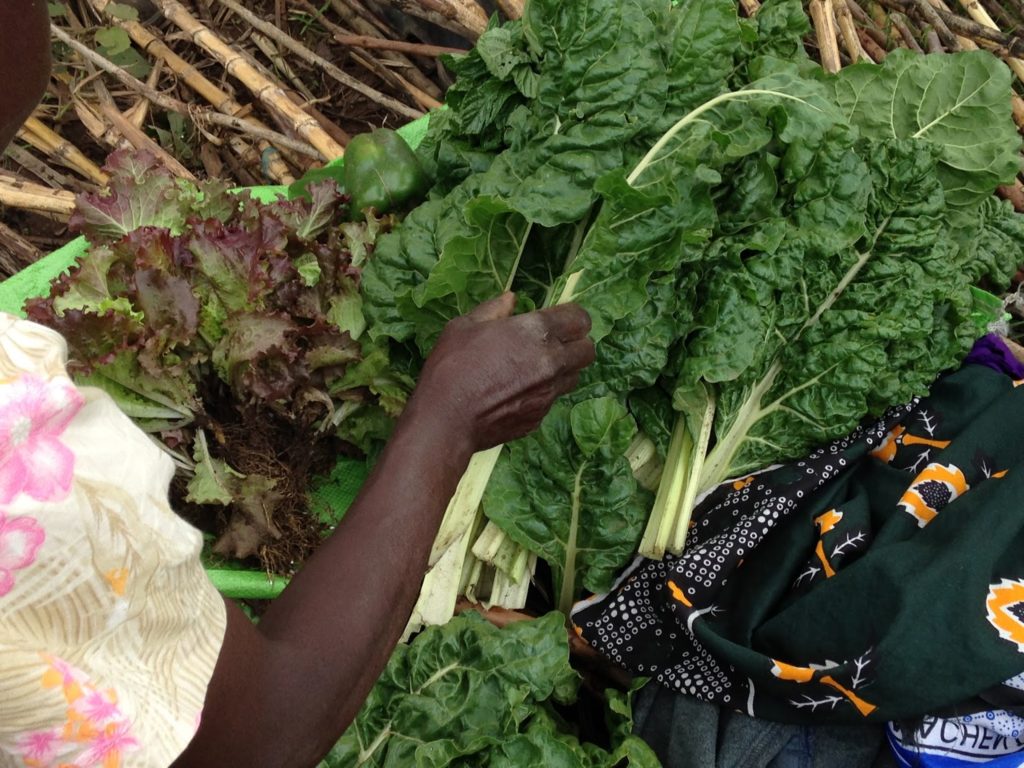Project Redwood Foundation(PRW) supported the original development of DIG’s resource manual toolkit, which includes a Garden Manual, a Nutrition Manual, a Pest andPlant-Disease Library, as well as a Protocol to Developing a Community Garden Program. In 2014, PRW supported the deployment of this toolkit to multiple organizations in order for them to establish sustainable agriculture programs and demonstration gardens. DIG distributed manuals and technical support in 7 countries to 18 different organizations, 3 schools, and 6 HIV support groups. In addition, DIG developed 12 demonstration gardens, benefitting over 2,000 people with increased access to food. One of these partner organizations was Wakisa Ministries in Kampala, Uganda. Wakisa Ministries was introduced to DIG by PRW and WorldShare. Wakisa offers temporary shelter, training and counseling for young pregnant girls who have been rejected by their families and exiled from their communities. Often the young girls are pregnant due to rape and are at higher risk for contracting HIV. DIG worked with the program’s director, part-time agriculture teacher, groundskeeper and the young girls themselves to convert an overgrown lot next to the center into a lush garden which would provide fresh produce for the girls on a daily basis. The synergistic missions of DIG and Wakisa helped to provide critical nourishment to young vulnerable pregnant women. Studies show that well-nourished mothers have healthier babies and generally easier pregnancies. When a woman does not get the proper nutrition she needs during pregnancy, she and her baby are at risk, with increased chances for infant and maternal mortality. Today, Wakisa Ministries continues to manage the garden. Because of the abundant harvests, they’ve seen a large reduction in food expenditures for the center as well as an increase in the diversity of foods consumed by the girls. The garden has also added a new component to the expectant mothers’ job training activities. After leaving the center, many of the girls have been able to use their new-found skills to establish gardens at their homes. These once culturally-dismissed young women are now finding themselves empowered and able to provide critically needed food for themselves and their young families.
Wakisa Ministries’ use of the DIG manual toolkit has demonstrated the value of this resource, which will continue to provide significant returns on PRW’s contribution to the toolkit’s development and testing. The manuals have been translated into French, and can now be used in Francophone African and Caribbean countries. A planned Spanish translation of the manuals will allow DIG to take this much-needed information into Latin America. The manuals will extend DIG’s model for sustainable agriculture and good nutrition into areas where DIG staff are not on the ground, multiplying DIG’s impact immeasurably while allowing DIG personnel to continue concentrating on their primary mission to the nutritionally vulnerable populations in Africa and other underserved regions.
